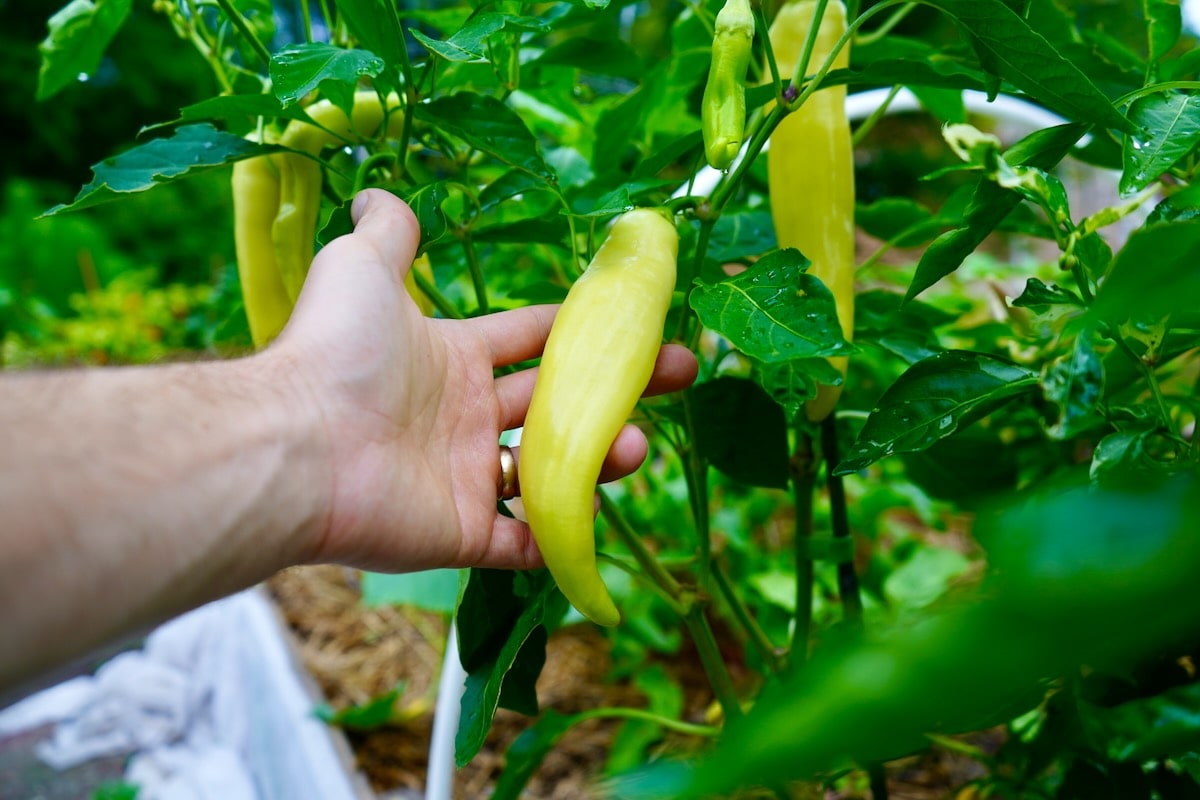Check Out the Best Fertilizers for Peppers and Enhance Your Garden's Return
Check Out the Best Fertilizers for Peppers and Enhance Your Garden's Return
Blog Article
Organic Vs. Synthetic Fertilizers: Which Is Best for Nurturing Healthy And Balanced Pepper Plants?
In the world of nurturing healthy and balanced pepper plants, the option in between synthetic and organic fertilizers stands as a crucial choice with far-ranging effects. While both choices aim to give crucial nutrients to support plant growth, the nuances of their effect on the dirt, plant health, and the atmosphere trigger a discussion that echoes throughout the horticulture community. Understanding the unique benefits and possible challenges of each fertilizer kind is essential for pepper cultivators seeking to optimize their yields while keeping a sustainable and eco-conscious approach.
Advantages of Organic Fertilizers
Organic fertilizers supply an environmentally-friendly and lasting strategy to nourishing pepper plants, giving vital nutrients without making use of artificial chemicals. These natural fertilizers are stemmed from natural sources such as compost, manure, bone meal, and seaweed, advertising soil health and wellness and biodiversity. Unlike synthetic plant foods, natural alternatives launch nutrients gradually, making certain a balanced and consistent supply for pepper plants to thrive.
One considerable advantage of organic fertilizers is their capacity to enhance soil framework and water retention. By enhancing soil health and wellness, natural plant foods advertise valuable microbial activity, which aids in nutrient uptake by pepper plants. In addition, organic fertilizers reduce the danger of chemical run-off, securing water sources from contamination and protecting the environment.
Furthermore, natural fertilizers contribute to lasting soil fertility by promoting the development of beneficial dirt organisms. These organisms aid damage down natural issue, launching nutrients in a kind that is quickly available to pepper plants. best fertilizers for peppers. By fostering a healthy soil ecological community, natural plant foods support lasting pepper farming methods that benefit both plants and the setting
Drawbacks of Synthetic Fertilizers
Synthetic plant foods, unlike their natural counterparts, position different drawbacks when used to nourish pepper plants, affecting both plant health and ecological sustainability. One major downside of synthetic plant foods is their propensity to seep nutrients from the dirt quickly. This rapid leaching can bring about vitamins and mineral inequalities in the dirt, causing plants to struggle with poisonings or shortages. Additionally, artificial plant foods can hurt beneficial soil microorganisms, such as earthworms and helpful microorganisms, disrupting the dirt ecosystem's balance.
Moreover, the overuse of artificial plant foods can contribute to water air pollution. Excess fertilizers not absorbed by plants can remove into water bodies, leading to eutrophication, where algae flowers diminish oxygen levels in the water, damaging water life. Synthetic plant foods are usually obtained from non-renewable sources, such as fossil fuels, adding to carbon discharges and environmental deterioration throughout their production.
Nutrient Absorption Comparison
When comparing artificial and useful site organic plant foods in terms of nutrient absorption, natural plant foods have the benefit of offering an extra well balanced and slow-release resource of nutrients. Organic plant foods have a range of macro and trace elements that are not just helpful for the plants however additionally promote healthy dirt microbial task, which aids in nutrient uptake.
Furthermore, organic fertilizers boost soil structure and water retention ability, allowing pepper plants to gain access to nutrients a lot more successfully. This enhanced soil quality promotes origin advancement, enabling better nutrient absorption. Synthetic plant foods, although at first improving plant development as a result of their high nutrient focus, may prevent long-term nutrient absorption by derogatory dirt health and wellness with time.
Ecological Impact Considerations

On the other hand, synthetic plant foods, although commonly more quickly readily available and focused to plants, can have detrimental impacts on the environment otherwise applied appropriately (best fertilizers for peppers). Their production calls for high power inputs, resulting in greenhouse gas discharges and adding to climate modification. The overflow of excess artificial plant foods can contaminate water sources, leading to eutrophication and harming marine environments.
Best Plant Food Practices for Peppers
To accomplish this, it is vital to follow ideal fertilizer methods tailored to the certain demands of pepper plants. One important technique is to execute a soil test before using any plant foods.
An additional vital technique is to feed pepper plants at the ideal time. Typically, peppers gain from getting plant food at growing and after that once again when they start to blossom. Over-fertilizing can cause nutrition imbalances and hurt the plants, so it is vital to adhere to advised application rates.
Additionally, selecting a well balanced plant food with an NPK proportion that fits pepper plants' needs is essential. Organic fertilizers, such as compost or manure, can be superb options as they release nutrients slowly and improve soil framework in time. Nonetheless, artificial fertilizers can offer a fast nutrient boost when required. Inevitably, incorporating synthetic Bonuses and natural fertilizers deliberately can assist support healthy and balanced pepper plants while lessening environmental influence.
Verdict
:strip_icc()/BHG-Growing-Peppers-Indoors-EzgaEnB7KML9Ym_plkvuxK-9398f1341d86483083862533ae7622db.jpg)
Organic plant foods supply a sustainable and environmentally-friendly technique to nourishing pepper plants, providing important nutrients without the use of artificial chemicals. Unlike synthetic fertilizers, organic options launch nutrients slowly, making sure a constant and well balanced supply for pepper plants to thrive.
Artificial plant foods, in contrast to their natural equivalents, position different downsides when made use of to nourish pepper plants, affecting both plant wellness and environmental sustainability. When contrasting synthetic and natural plant foods in terms of nutrient absorption, natural fertilizers have the advantage of providing a more well balanced and slow-release resource of nutrients.Additionally, organic fertilizers improve soil structure and water retention capability, allowing pepper plants to accessibility nutrients much more effectively.
Report this page